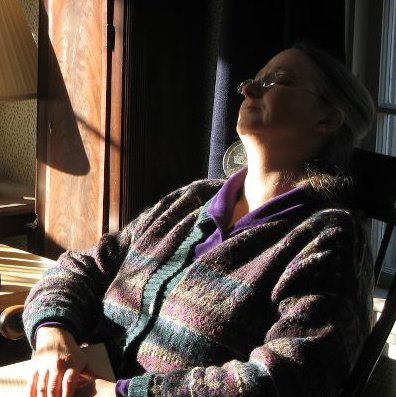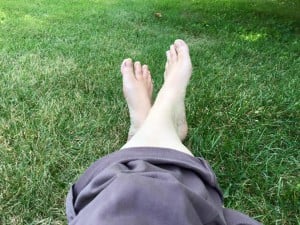All posts in this series:
Part I: Getting (and Losing) That Old Time Religion
Part II: Coming Home
Part III: The Fool’s Journey
Part IV: The Underworld
Part V: Seven of Cups
Part VI: A Letter and a Kiss
Part VII: Morticia Loves Gomez
Part VIII: Nora
Part IX: Felicia Hardy and the Tower of Babel
Part X: When Babel Fell
Part XI: Community 2.0
Part XII: This Forgiveness Stuff
From time to time, someone does ask about my spiritual journey. Mainly, it’s Quakers, asking about what Paganism is, though sometimes it will be a co-worker, wanting to know more either about how I came to call myself Quaker, or what on earth I mean by Pagan. I should probably mention that, despite my best efforts to be discrete about my religion at work, I was outed as Wiccan within six months of becoming a teacher by kids who know how to use Google. This blog, which at least features current information, that reflects my beliefs and practices in the present, is at least partially a response to that.
In any case, when I’m asked to explain my spiritual life, it’s often in a setting where either there’s no time for more than a sound-bite answer, or where socially, more than a sentence or two of explanation is inappropriate. Not to mention that sometimes, especially in a Quaker setting, I’m in a frame of mind that doesn’t lend itself to a lot of words. Sometimes, it’s hard even to know where to begin.
So here’s what I remember of the odd and curving path that led to where I stand today. From the beginning, then:
When I was eleven or twelve years old, I used to tell all my friends that I was a Pagan. I lived, you see, in a very Catholic town, and most of my friends were getting ready for their First Communions–white dresses and solemnity. It was always very clear to me that I could not possibly be a Catholic. Was it the post-Vatican Two astringency of the local Catholic churches that made that clear? I don’t know. Nor did I know anyone else who felt as I did about religion and about the world. But I felt very strongly that I most certainly was a something, even if I didn’t have any way of explaining what to the other kids around me.
I didn’t really get the whole churches and Sunday School thing, but I had once been sent to an Episcopalian summer camp. The Episcopalian part was pretty much invisible, except on those handful of Sundays when we all trooped out to the outdoor chapel. It had a fieldstone altar, and weatherbeaten wooden benches, and it sat in a grassy clearing in the woods. Most of the other kids seemed happy to be racketing from activity to activity all day long, but I really longed for quiet thinking time. Probably I was the only kid there who loved our enforced daily “siesta” in the afternoon–the only time I got to curl up with a book, and soak up the warm wood smell of the cabin while quietly paging through The Chronicles of Narnia.
I loved chapel.
I loved the place, I mean. Father C., the fellow who ran the camp, and must surely have conducted the services, seemed to me to be distant, gruff, and unimaginative–though it may be simply that he didn’t catch my childish imagination. I remember nothing whatsoever of the services there, except for the place itself, and the slightly embarassing detail that, having no idea what was going on around me, I did get in line for communion along with everyone else. Probably chewed the host like a graham cracker, too–I would not have had the foggiest idea what the ritual symbolized. (I was, at that age, what people of my grandmother’s generation would have termed “a perfect pagan”–small p–meaning my parents had given us no religious education at all beyond Christmas trees and hot cross buns.)
Anyway, between the camp chapel, The Chronicles of Narnia, and the woods I grew up in, I came to recognize that the focus of my inchoate spiritual longings was outdoors, in quiet places full of trees. How I figured out that the word for that was “Pagan” I do not know. I do know that I spent many Saturday mornings cross-legged on the floor of the public library, wolfing down chapters of James Frazer’s The Golden Bough. Yes, at twelve. I’m not claiming to have understood much of what he had to say, and certainly I had no idea that his real aim was not to honor Pagan religion, but to debunk Christianity. But he wrote about magic, and he wrote about mythology, and he wrote about religious life that involved the outdoors, the woods and trees and nature spirits.
It wasn’t enough–not nearly enough–for a solitary girl to be able to create an entire religion for herself, alone. But I tried. And I called what I was trying “Paganism.”
I think I finally gave the label up when one too many people told me that I couldn’t be Pagan as a religion, because “Pagan” meant “against religion” (or against Christianity, which, in the view of my childhood peers, was the same thing). I never stopped longing, but I did stop naming the longing. And when I was in high school, that whole part of my being went dormant. There was only one religion–or at least, only one that anyone in my country could really ever learn or enter–and that was Christianity. And while reading books like The Screwtape Letters did give me a superstitious, looking over-my-shoulder nervousness about heaven and hell, Christianity as I knew of it did absolutely nothing to evoke that awe and delight I felt, for instance, at Woodland Dell Cemetary (home to the biggest and most stately trees I knew, and to a velvet silence that drew me day after day once I found my way in one summer afternoon).
Christianity, to me, was church basements and linoleum tile, friends who gave up candy bars “for Lent” and my copy of a children’s Bible that taught me all of the stories, but absolutely none of the “why” about that particular religious tradition. It seemed (still seems, with apologies to those who find it otherwise) such a thin gruel.
So Paganism was a closed door, because I was the only one, and I couldn’t quite figure out how to “be” Pagan all alone, and Christianity was a door I had no interest in whatsoever.
And then along came secular humanism, in my late teens and early twenties, in the persons of my high school sweetheart (eventually first husband) and his family of science geniuses.
Well, OK. Maybe not geniuses. But these guys–my boyfriend, his brothers, and his dad–so loved the world of science and research and intellect that it was a revelation to me. Dinner conversations frequently centered on astronomy, or geology, organic chemistry, or (my favorites, because I could understand them best) biology. And it was like discovering a new planet and a new muscle, all at the same time. I’d never spent much time with people who found such joy in simply thinking, and I really liked it. I liked it even better when, at college, I took some science courses of my own, and discovered that my mind was stronger in those areas than I’d previously thought. Indeed, the farther I went in college, the more science courses I took winding up, my senior year, taking more courses in bio than in my major, English. When a friend, another English major, decided in the second semester of our senior year to join a graduate program that took humanities majors, like us, and turned us into premeds, I was almost tempted myself.
I had learned to love science, and in a way that almost–almost–filled my spiritual hungers. It probably helped that my new father-in-law was not only one of the kindest men I have ever known, he was one of the most spirit-filled. A Unitarian who attended the local UCC/Methodist church to please his wife, he was the first human being I ever knew who had that quality of almost visible Light shining from his eyes… For him, the Light spoke through geological strata, through trillobites and the puzzles of chemical research into the Mystery of life. So it was a scientist who never, in my hearing, spoke a word about God or an afterlife who first showed me what it was possible for a human soul to become. I will always be grateful to him for that.
I didn’t become a scientist, however. It was law school I entered after college (newly married to my science-loving high-school sweetheart, who, in turn was studying electrical engineering and quantum physics).
I entered with a fierce joy in the human intellect. My new husband and I, newlyweds on a grad-student budget, had a host of inexpensive traditions in those days. I think my favorite was our Sunday evening pancake supper, as we watched Carl Sagan’s Cosmos on PBS. Together, we read publications like The Skeptical Enquirer, bought texts in disciplines neither of us had studied to read for enjoyment, and took long, long walks in the dusk of our university town, talking and talking and talking. It was a wonderful life, even though neither a legal career nor that marriage were going to be permanent parts of my life.
It was during that time that I first was exposed, in person, to Wiccans.
If I had had the opportunities, when I was younger and actively seeking a way to be Pagan, that modern Pagan kids have, I don’t know how things would have gone. I did run into some of the very early, 1960’s Witchcraft literature when I was still a kid. I think I must have read Sybil Leek’s Diary of a Witch when it first came out. It was interesting, I guess, but not very Pagan–not very religious, and mainly, I could see even at the time, about a woman who really wanted to be famous for something. It definately didn’t seem like anything I could adopt myself, even without all the claims about ancient family traditions. Certainly, it didn’t seem to have anything to do with my own small life in my own small town.
But today? With access to decent, reliable, and even spirit-filled Pagan writing online? I know I would have been conducting rituals in a cross-quartered circle in my back yard. (As it was, I did what I could, from dancing in the moonlight to private, self-created little rituals in my bedroom, all through my early adolescence.) I’m sure I’d have participated in forums open to teen seekers, learned to meditate a decade or two sooner than I did, learned to dowse, and so forth. Though I don’t think that the deepest, realest changes that Paganism made in me would have come any sooner than they did. Some things just can’t happen before a certain amount of lived experience readies you for them.
Would I have thought the first Wiccans I met were as silly as I thought them back then? Well, yes. More than likely. In grad school, the Wiccans I had some exposure to–this was the early 80’s, so Wicca was just starting to catch on in a big way–were Dianics: feminist Wicca. Lots of history of the ancient matriarchy, sisterhood-is-beautiful stuff. Though I hadn’t yet read much ancient history, even back then it seemed pretty clear to me that most of the claims they were making were ahistorical as all get-out. Honestly, I took them for flakes, and dismissed them at first glance.
Which is pretty funny, actually, given that it was a “sisterhood-is beautiful” insight that eventually led me back to Wicca, and to Paganism, to stay.
(To Be Continued)















